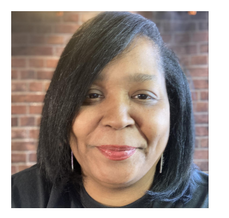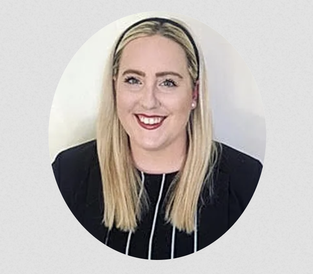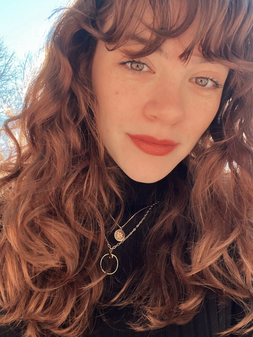|
One of the most common questions I get at writers conferences is this: Can I query multiple literary agents at once? My answer is that not only yes you can, but you’re encouraged to. After all, though an agent will usually reply quickly (bless you, e-mail), they may take three whole months to get back to you, only to send you a form rejection. You can’t wait around for agents one by one like that.
So if you’re contacting various agents at the same time (“simultaneous submissions”), how many agents should you query? Would it be wise to just mail out your query to all 50 agents who rep adult science fiction, trying to personalize your letter wherever possible? I wouldn’t, if I were you. I would submit to 25% of your list of agent possibilities. But why 25%? Isn’t that a strange arbitrary percentage? I say 25% because I want you to protect yourself. My question to you is this: What if you submit your query to all 50 agents on your master list, but — heaven forbid — your query letter sucks? Every agent will turn you down and you’ll have hit a brick wall at the beginning of your journey. Instead, submit to a limited number of agents and gauge a response. If you submit to 12 agents and get 12 rejections with no reps asking to see more work, then guess what? Your query sucks. So edit your query letter. Overhaul it. Give it to friends, beta readers, and/or a professional book editor for a look. Protect yourself. Taking this approach one step further, let’s say you send your polished query to 12 new literary agents, and get 3 responses asking for more work. Congratulations — your query letter is doing its job. But let’s say that none of those 3 agents who see a partial ask to read your full manuscript. Guess what that means? Your first few chapters aren’t up to snuff. Revise them. Overhaul them. Give the chapters to friends for a blunt critique. The message is this: If you’re not progressing as you hope, try to identify where you’re going wrong so you can improve on it as quickly as possible. Protect yourself. Give yourself the best chance of success in finding a literary agent. ATTEND A WRITERS CONFERENCE IN 2023:
We spotlight new/newer literary agents who are open to queries and looking for clients. At writers conferences, a frequent question I get is “Is it OK to sign with a new agent?” This is an interesting question, so let me try to delve into it here.
First of all, let’s look at the CONS:
Now let’s look at the PROS:
How can you decide for yourself? Factor in if they’re part of a larger literary agency. Agents share contacts and resources. If your agent is the new girl at an agency with five people, those other four agents will help her (and you) with submissions. She’s new, but not alone. Learn where the agent came from. Has she been an apprentice at the agency for two years? Was she an editor for seven years and just switched to agenting? If they already have a few years in publishing under their belt, they’re not as green as you may think. Agents don’t become agents overnight. Ask where she will submit the work. This is a big one. If you fear the agent lacks proper contacts to move your work, ask it straight out: “What editors do you see us submitting this book to, and have you sold to them before?” The question tests not only their plan for where to send the manuscript, but also their fervor for the work. Ask “Why should I sign with you?” This is another straight-up question that gets right to the point. If she’s new and has little/no sales at that point, she can’t respond with “I sell tons of books and I make it rain cash money!! Dolla dolla bills, y’all!!!” She can’t rely on her track record to entice you. So what’s her sales pitch? Weigh her enthusiasm, her plan for the book, her promises of hard work, and anything else she tells you. In the publishing business, you want communication and enthusiasm from agents (and editors). Both are invaluable. What’s the point of signing with a huge agent when they don’t return your e-mails and consider your book last on their list of priorities for the day? Get to know them personally. Agents reveal a lot about their personalities and lifestyle through their Twitter accounts. Plus, you can always attend a writers conference or writing retreat where agents gather to meet with them. If you’re not sold, you can always say no. It’s as simple as that. Always query new/newer agents because, at the end of the day, just because they offer representation doesn’t mean you have to accept. ATTEND A WRITERS CONFERENCE IN 2023:
I’ve never met a single person who liked writing a synopsis. Seriously — not one. But still, synopses are a necessary part of the submission process (until some brave publishing pro outlaws them), so I wanted to share 5 basic tips today regarding how to compose one in case you’re query agents or getting ready to pitch at a writers’ conference.
A synopsis is a summary of your book. Literary agents and editors may ask to see one if you’re writing an adult novel, a memoir, or a kids novel (young adult, middle grade). The purpose of a synopsis request is for the agent or editor to evaluate what happens in the three acts of your story to decide if the characters, plot and conflict warrant a complete read of your manuscript. And if you haven’t guessed yet, they’re pretty tough to write. If you are indeed putting one together and sending your work out, check out these tips below: 1. Reveal everything major that happens in your book, including the ending. Heck, revealing the story’s ending is a synopsis’s defining unique characteristic. You shouldn’t find a story’s ending in a query or in-person pitch, but it does leak out in a synopsis. On this note, know that a synopsis is designed to explain everything major that happens, not to tease — so avoid language such as “Krista walks around a corner into a big surprise.” Don’t say “surprise,” but rather just tell us what happens. 2. Make your synopsis two pages, double-spaced. There is always some disagreement on length. This stems from the fact that synopses used to trend longer (six, eight, or even 12 pages!). But over the last five years, agents have requested shorter and shorter synopses — with most agents finally settling on 1-2 pages, total. If you write yours as one page, single-spaced, it’s the same length as two pages, double-spaced — and either are acceptable. There will be the occasional agent who requests something strange, such as a “5-page synopsis on beige paper that smells of cinnamon!” But trust me, if you turn in a solid 1-2 page work, you’ll be just fine across the board. (Need a query edit or synopsis edit before you submit to agents? See more here,) 3. Take more care and time if you’re writing genre fiction. Synopses are especially difficult to compose if you’re writing character-driven (i.e., literary) fiction, because they may not be a whole lot of plot in the book. Agents and editors understand this, and put little (or no) weight into a synopsis for literary or character-driven stories. However, if you’re writing genre fiction — specifically categories like romance, fantasy, thriller, mystery, horror or science fiction — agents will quickly want to look over your characters and plot points to make sure your book has a clear beginning, middle and end, as well as some unique aspects they haven’t seen before in a story. So if you’re getting ready to submit a genre story, don’t blow through your synopsis; it’s important. 4. Feel free to be dry, but don’t step out of the narrative. When you write your prose (and even the pitch in your query letter), there is importance in using style and voice in the writing. A synopsis, thankfully, not only can be dry, but probably should be dry. The synopsis has to explain everything that happens in a very small amount of space. So if you find yourself using short, dry sentences like “John shoots Bill and then sits down to contemplate suicide,” don’t worry. This is normal. Lean, clean language is great. And lastly, do not step out of the narrative. Agents do not want to read things such as “And at the climax of the story,” “In a rousing scene,” or “In a flashback.” 5. Capitalize character names when characters are introduced. Whenever a new character is introduced, make sure to CAPITALIZE them in the first mention and then use normal text throughout. This helps a literary agent immediately recognize each important name. On this subject, avoid naming too many characters (confusing) and try to set a limit of five, with no more than six total. I know this may sound tough, but it’s doable. It forces you to excise smaller characters and subplots from your summary — actually strengthening your novel synopsis along the way.  About the agent: Originally from Jamaica West Indies, Michelle Jackson is a Literary Associate with Olswanger Literary. An educator for over 20 years, Michelle is also a published author, writing professionally as Michelle Lindo-Rice for Mira and Harlequin Special Edition and Zoey Marie Jackson for Harlequin Love Inspired. She has earned educational degrees from New York University, SUNY at StonyBrook, Teachers College Columbia University and Argosy University. She is seeking: I look forward to bringing adult fiction and select non-fiction of new authors work out there, especially BIPOC and underrepresented authors. I am also a content editor and love developing and working with new authors to help them hone their craft. I am looking for stories with strong character arcs and hooks. Intriguing plot lines that keep me up at night until I get to the last page. Romances that make my heart swoon, thrillers that keep me guessing and heartwarming, uplifting tales. Stories about sister friends, mother-daughter relationships. Stories with themes of friendship, forgiveness, love and second chances. I have a soft spot for fellow educators who are writers and for stories featuring educators. I also am looking for those who want to write category romances - I also love Amish romances! Fiction: Commercial, Historical, Humor, New Adult, Romance, Science Fiction, Fantasy, Thriller, Women’s Fiction. Sub-genres: Contemporary Romance, Multicultural, Psychological Thrillers, Romantic Comedy, Romantic Suspense. Nonfiction: Biography, True Crime, Self-Help, Relationships, Cookbooks, Narrative, Spirituality, select Memoirs How to submit: See her submission page here: https://www.michellezjackson.com/submit-to-me.html ATTEND A WRITERS CONFERENCE IN 2023:
About the agent: Caroline Trussell is a Junior Agent with Metamorphosis Literary Agency. Caroline has a background in editing, writing, and communications and has worked as an agent assistant, editorial assistant, journalist, and communications consultant. She is passionate about finding writers with unique voices and points of view and is looking for steamy romances, out of this world fantasies, and YA and MG that touch on vital topics that can’t be ignored. She’s also a self-published young adult author, a Columbia Publishing Course graduate, and a mental health advocate.
She is seeking:
How to contact: Find her submission link here: https://www.metamorphosisliteraryagency.com/submissions ATTEND A WRITERS CONFERENCE IN 2023:
About the agent: Cheyenne Faircloth (she/her/hers) joined Handspun Literary Agency as an agency assistant in 2021, after graduating with a B.F.A. in Creative Writing, and a certification in Publishing from the University of North Carolina Wilmington. Before Handspun, Cheyenne interned as an editorial assistant at Howland Literary, and was a member of the editorial and acquisition teams at Lookout Books, an independent publisher that is home to National Book Award Finalist Edith Pearlman. Cheyenne also independently managed a book blog where she collaborated with both major and indie publishers to promote upcoming titles and participated in various promotional activities centered around supporting debut authors.
She is seeking: Cheyenne is most interested in manuscripts from historically excluded communities, i.e. queer, BIPOC, AAPI, neurodivergent, and disabled voices. Her interests include YA, Southern Gothic, folkloric elements, gothic romances, fantasy stories with political elements and well-grounded world building, non-western mythology, sports romances in conversation with institutional issues/sexism/gender, and creatures from myth told through a queer allegorical lens. She is not currently accepting middle grade, picture books, or nonfiction. How to contact: Find Cheyenne's submission guidelines here: http://handspunlit.com/about/ ATTEND A WRITERS CONFERENCE IN 2023:
|
AuthorWrite something about yourself. No need to be fancy, just an overview. ArchivesCategories
All
|
|
WritingDayWorkshops.com All Rights Reserved. Copyright 2024
|


 RSS Feed
RSS Feed